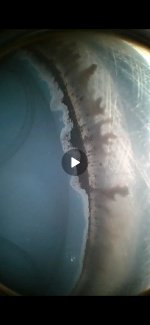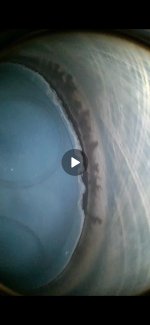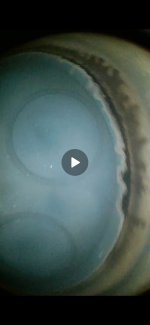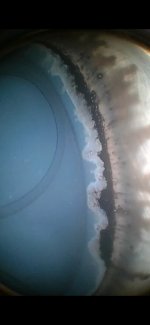Hi mate,
After few min at idle egr closes and full air is entering the engine and that's why measured air is higher than target in. Same happens when you block egr at idle measured is always higher.
Could you send video I'd like to see it please?
+381603389588 is my number
Info about dpf change, it's done but I'm not satisfied. Measured dpf pressure with new sensor is higher - 5-8mbar at idle. It's still clogging very fast and today it might do first regeneration after dpf reset. I was able to do reset only with alfaobd, mes and bosch diagnostics couldn't do it! Also I can't calibrate new dpf sensor it shows 2mbar at mar. No calibration from any diagnostic equipment is possible. I'm in touch with dpf service who did it but I'm not optimist. Cleaning egr and injectors test are only what's left. Boost and vacuum test also. Ecu might be faulty, I was measuring reference voltage like 3,5V. It might mess sensor data. We'll see, the year is young
Ps. Your boost pressure measured at idle it's much lower than mine. I'm about 920+mbar
That - 3mbar presuure, was it at mar od engine idle?
At the end, I'm just thinking that all this is happening because we have low compression and not full combustion in cylinders and that's why a lot of soot and smoke is made. What ever we do, we'll have the same. The only way is to reduse those 2 is new engine or properly rebuilt one. I'm praying that I'm wrong...
After few min at idle egr closes and full air is entering the engine and that's why measured air is higher than target in. Same happens when you block egr at idle measured is always higher.
Could you send video I'd like to see it please?
+381603389588 is my number
Info about dpf change, it's done but I'm not satisfied. Measured dpf pressure with new sensor is higher - 5-8mbar at idle. It's still clogging very fast and today it might do first regeneration after dpf reset. I was able to do reset only with alfaobd, mes and bosch diagnostics couldn't do it! Also I can't calibrate new dpf sensor it shows 2mbar at mar. No calibration from any diagnostic equipment is possible. I'm in touch with dpf service who did it but I'm not optimist. Cleaning egr and injectors test are only what's left. Boost and vacuum test also. Ecu might be faulty, I was measuring reference voltage like 3,5V. It might mess sensor data. We'll see, the year is young
Ps. Your boost pressure measured at idle it's much lower than mine. I'm about 920+mbar
That - 3mbar presuure, was it at mar od engine idle?
At the end, I'm just thinking that all this is happening because we have low compression and not full combustion in cylinders and that's why a lot of soot and smoke is made. What ever we do, we'll have the same. The only way is to reduse those 2 is new engine or properly rebuilt one. I'm praying that I'm wrong...
Last edited:







